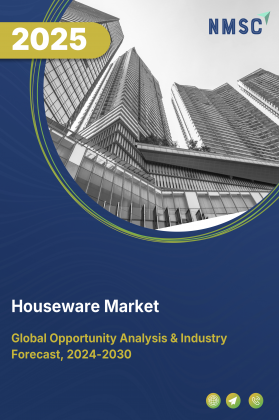
Japan Smart Home Market by Product Type (Security & Access Control, Lighting & Electrical Controls, Energy Management & Controls, Climate & Comfort, Smart Appliances, Home Entertainment, Control & Automation, and Others), by Installation Type (DIY, Professional, Hybrid), by Sales Channel (Online, Retail, and Professional)– Country Opportunity Analysis and Industry Forecast, 2024–2030.
Industry: Retail and Consumer | Publish Date: 29-Oct-2025 | No of Pages: 179 | No. of Tables: 140 | No. of Figures: 85 | Format: PDF | Report Code : RC2289
Market Overview
The Japan Smart Home Market size was valued at USD 4.54 billion in 2023, and is predicted to reach USD 16.15 billion by 2030, at a CAGR of 19.9% from 2024 to 2030. A smart home, also known as a connected home, is a residence equipped with state-of-the-art technology and automated systems.
Smart home systems enable the centralized control and monitoring of various household devices, appliances, and security features through a unified network. These intelligent devices are managed remotely and often respond to voice commands or predetermined schedules, enhancing convenience, energy efficiency, and security for homeowners.
Typical components found in connected homes include smart thermostats, lighting systems, security cameras, voice assistants, and other interconnected devices designed to improve the overall quality of life.
Government-and-regulation Drivers Accelerating Smart Home Adoption
The Japanese government continues to drive smart home growth through new regulations and incentive programmes that align with national energy-efficiency and sustainability goals. With the push for net-zero buildings, smart-enabled homes are becoming part of mainstream housing policies—financial subsidies and mandatory standards for eco-friendly construction make integrated smart-home features more accessible and attractive to consumers. This regulatory support both lowers barriers to entry and raises the baseline expectation for smart features in new builds and renovations, thereby accelerating market expansion.
Technology And Connectivity Advancements Supporting Market Uptake
Advances in IoT connectivity, AI-enabled devices and unified smart home protocols are enabling more seamless, intuitive smart home experiences in Japan. The spread of high-speed internet infrastructure, voice assistants, and interoperable ecosystems means that smart home solutions are less complex, more user-friendly and more appealing. As these technologies become both more capable and more affordable, consumer willingness to adopt smart home systems increases—driving demand across security, energy-management and comfort applications.
Infrastructure And Retrofit Challenges Restrain Market Expansion
Despite increasing consumer awareness and interest in connected living solutions, the growth of Japan’s smart home market is hindered by infrastructure limitations and high retrofit complexity. A large share of Japan’s housing stock comprises older buildings and rental properties that lack modern electrical systems, standard smart-home interfaces, or high-speed connectivity. This creates challenges in integrating advanced technologies efficiently and cost-effectively. Additionally, the high upfront costs of upgrading existing homes—including rewiring, installation labor, and compatible equipment—discourage adoption among middle-income households and tenants. As a result, many consumers postpone or limit their investment in smart home solutions, slowing overall market penetration and expansion.
Expansion Of Assisted Living & Health-centric Smart Home Solutions
Japan’s ageing population and increasing focus on “aging in place” present a significant growth opportunity for the smart home market. Smart home systems tailored to health monitoring, fall detection, and remote caregiving are increasingly in demand as households seek to support elderly and mobility-challenged residents. Enhanced sensor suites, voice-activated controls, automated lighting and climate settings, and integrated telehealth connectivity transform traditional homes into responsive living environments that support wellness and safety. Providers that combine home automation with healthcare services and build ecosystems around these offerings are positioned to capture new segments of the market and drive long-term adoption.
Competitive Landscape
Several market players operating in the Japan smart home industry include ABB Ltd, FUJITSU GENERAL, Google Home, Hitachi, Ltd., Resideo Technologies, Inc. (Honeywell Home), LG Electronics, Nature Inc., Legrand Group (Netatmo), Panasonic Corporation, Samsung, Schneider Electric, Sharp Corporation, Toshiba Corporation, Universal Electronics Inc. (UEI), Xiaomi Corporation, and others.
Japan Smart Home Market Key Segments
By Product Type
-
Security & Access Control
-
Smart Cameras
-
Video Doorbells & Intercoms
-
Electronic Locks
-
Alarm Panels and Kits
-
Door and Motion Sensors
-
-
Lighting & Electrical Controls
-
Smart Bulbs & Fixtures
-
Smart Light Strips
-
Smart Switches & Dimmers
-
-
Energy Management & Controls
-
Smart Plugs & Outlets
-
Smart Breakers
-
Energy Monitors
-
Home Load Controllers
-
-
Climate & Comfort
-
Smart Thermostats
-
HVAC Controllers
-
Smart Vents
-
Air Quality Monitors
-
-
Smart Appliances
-
Large Appliances
-
Refrigerators
-
Washing Machines and Dryers
-
Dishwashers and Ovens
-
-
Small Appliances
-
Robot Vacuums
-
Kitchen IoT Devices
-
Other Small IoT Appliances
-
-
-
Home Entertainment
-
Smart Speakers & Displays
-
Streaming Devices & Media Controllers
-
-
Control & Automation
-
Hubs & Gateways
-
Automation Controllers
-
Wall Panels and Keypads
-
Motorized Blinds and Garage Controllers
-
-
Other Products
By Installation Type
-
DIY
-
Professional
-
Hybrid
By Sales Channel
-
Online
-
E-commerce Marketplaces
-
Direct-to-Consumer (DTC)
-
-
Retail
-
Electronics Retailers
-
Supermarkets & Hypermarkets
-
Specialty Stores
-
-
Professional
-
Electrical Contractors
-
System Integrators
-
Telecom Providers
-
Property Developers
-
Key Players
-
ABB Ltd.
-
FUJITSU GENERAL
-
Google Home
-
Hitachi, Ltd.
-
Resideo Technologies, Inc. (Honeywell Home)
-
LG Electronics
-
Nature Inc.
-
Legrand Group (Netatmo)
-
Panasonic Corporation
-
Samsung
-
Schneider Electric
-
Sharp Corporation
-
Toshiba Corporation
-
Universal Electronics Inc. (UEI)
-
Xiaomi Corporatio
Report Scope and Segmentation
|
Parameters |
Details |
|
Market Size in 2023 |
USD 4.54 Billion |
|
Revenue Forecast in 2030 |
USD 16.15 Billion |
|
Growth Rate |
CAGR of 19.9% from 2024 to 2030 |
|
Analysis Period |
2023–2030 |
|
Base Year Considered |
2023 |
|
Forecast Period |
2024–2030 |
|
Market Size Estimation |
Billion (USD) |
|
Growth Factors |
|
|
Companies Profiled |
15 |
|
Market Share |
Available for 10 companies |
|
Customization Scope |
Free customization (equivalent up to 80 working hours of analysts) after purchase. Addition or alteration to country, regional, and segment scope. |
|
Pricing and Purchase Options |
Avail customized purchase options to meet your exact research needs. |

















 Speak to Our Analyst
Speak to Our Analyst
























